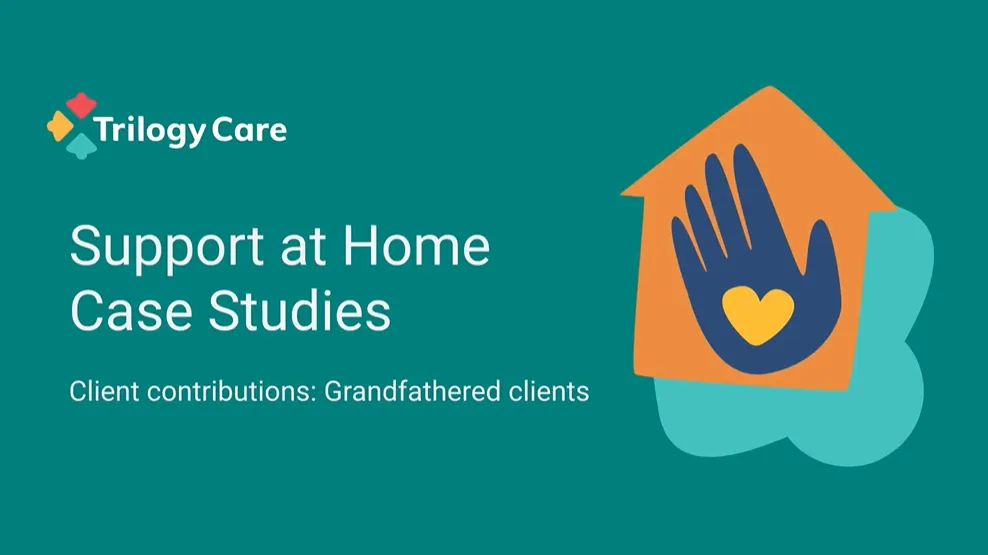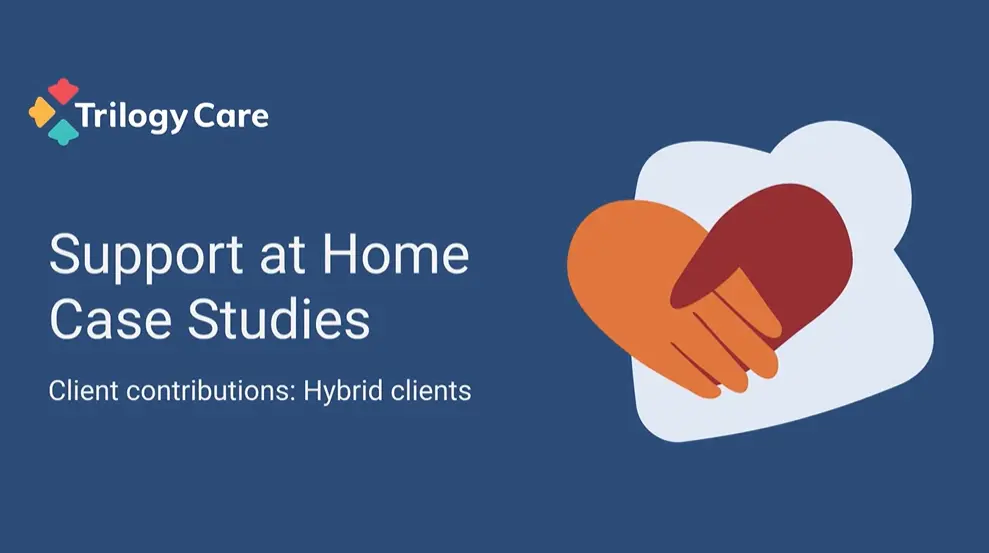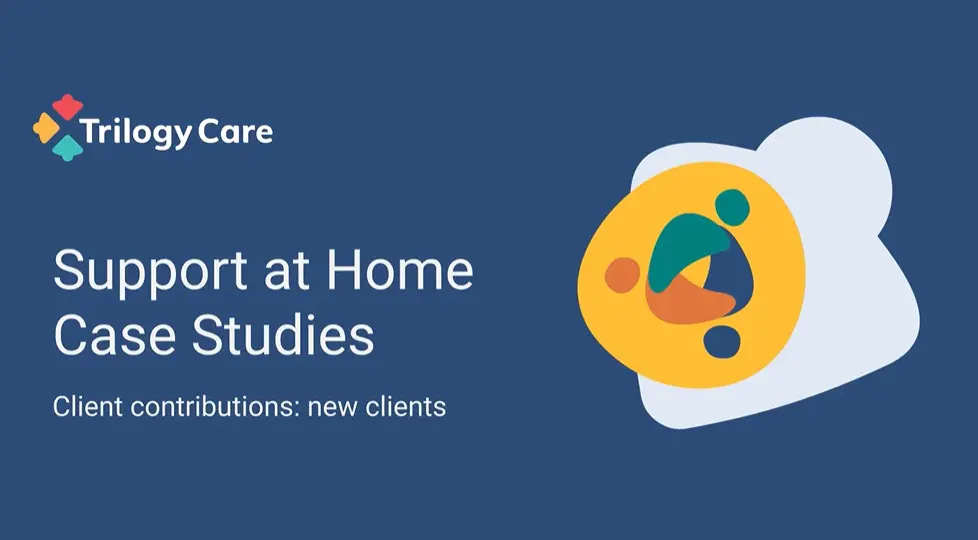Support at Home
Enjoy the new aged care system with Trilogy Care

From 1 November 2025, theSupport at Home programreplaced the Home Care Packages program across Australia. The new program streamlines how services are organised and makes care at home more personalised and easier to navigate.
Whether you currently receive support or are just getting started, Trilogy Care is here to help. We’ll explain what’s changed and what stays the same, map your goals to the new service categories, and help you plan and track your quarterly budget. If you self-manage, we’ll support you to choose and coordinate your workers while we handle safety, governance and claims. Your dedicated care partner will work with you to make the most of your care.
Explore our informative articles, Client contribution calculator and FAQs to stay up to date with Support at Home.
About Support at Home
Trilogy Care is here to guide you
TheSupport at Home programis a key reform in Australia's new aged care program, designed to deliver greater consistency, transparency and choice for older Australians receiving care at home.
This transformation is more than just a name change—it's a shift in how aged care services are funded, structured and delivered.
What changed under the new aged care program
Under the Support at Home program, clients saw three major changes
Quarterly budgets replaced daily subsidies
Provides more predictability and flexibility when planning care
Services were grouped into three structured categories
Includes Clinical care, Independence support and Everyday living support
New client classifications were introduced
Grandfathered, Hybrid, and New - determining funding rules and fee contributions
Trilogy Care helps you make sense of these aged care changes by:
- Explaining which participant group you belong to and what that means for your fees and entitlements
- Supporting you to manage your quarterly budget and prioritise the services that matter most
- Guiding you through eligibility, reassessments and provider choices under the new system
- Making aged care simple, transparent and tailored - so you can live well at home, with the right support around you
Support at Home calculator
Quickly estimate your home care costs with our simple, personalised SAH Quarterly Calculator — understand your funding, fees and contributions in minutes.
Support at Home case studies
These real-life case studies will help you understand how the Support at Home changes work in practice, whether you are a Grandfathered Client, a Hybrid Client, or new to the system.
Each scenario explains what to expect based on different financial situations, including full Age Pension, part-pension, and self-funded retirees. You will see how quarterly budgets, client contributions, unspent funds, and the service list will apply in everyday situations.
More information about Support at Home
Looking for clear, up-to-date guidance? Our library of Support at Home articles breaks down everything you need to know about this new aged care program—and what it means for you.
Frequently Asked Questions
Find answers to common questions about the Support at Home program and how it affects your aged care services.
Understanding Support at Home
Support at Home is a new aged care program that began on 1 November 2025. It replaced the current Home Care Package (HCP) program and is designed to improve in-home care by offering more flexibility, transparency and support for older Australians to live independently at home for longer.
Yes. All clients who were receiving a Home Care Package, automatically transitioned to the Support at Home program at the same funding level.
The Support at Home program introduces several improvements over the current Home Care Package system:






